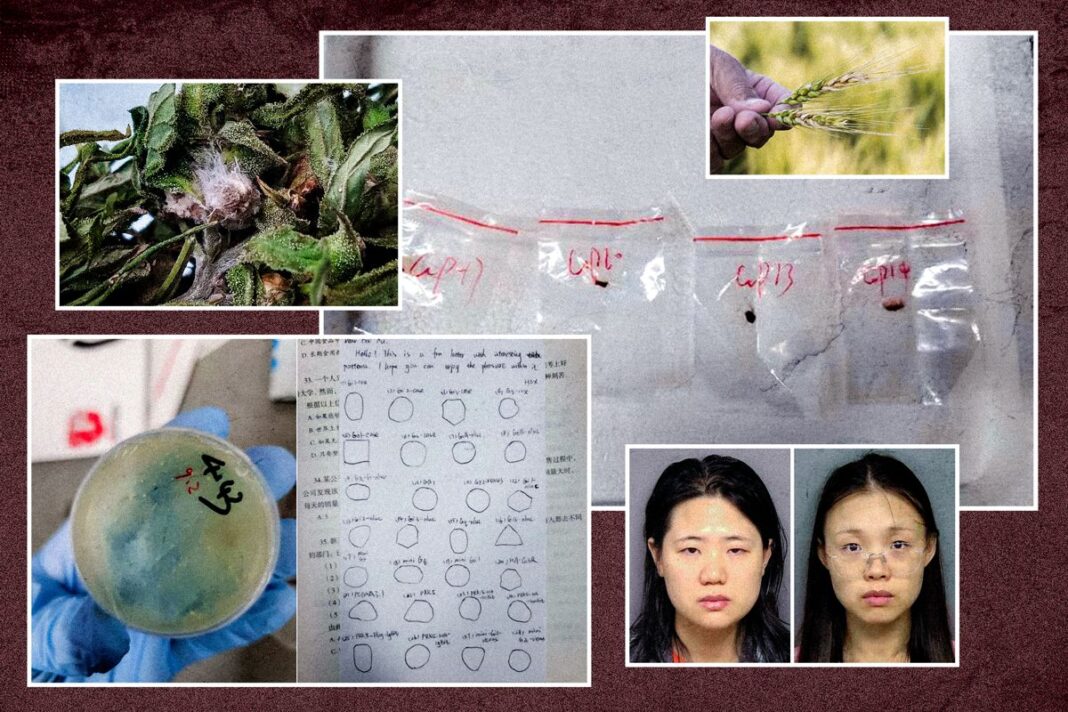Prosecutor says alleged smuggling of fungus has been described as ‘potential agroterrorism weapon’
After deboarding his international flight in Detroit in July 2024, a Chinese molecular biologist headed to the U.S. Customs area.
There, officers discovered something strange in Liu Zunyong’s bags—a wad of crumpled-up tissue in a small pocket of his backpack, according to a federal criminal complaint.
The tissue concealed a note in Chinese, a round piece of filter paper with a series of circles drawn on it, and four clear plastic bags containing small reddish plant material, the complaint states.
Officers asked Liu, who told them he was visiting his girlfriend in the United States on a B-2 tourist visa, what the objects were.
Initially, he stated that he did not know what the materials were and that someone must have put them in his bag.
When asked why someone would put those materials in his bag, he told investigators he did not know and that maybe he had accidentally put the materials there.
As the questioning became more intense, the complaint states Liu admitted to making false statements. Eventually, he told them the materials were different strains of a toxic fungus known as Fusarium graminearum.
The fungus is a pathogen that could be used in agroterrorism—a form of biological warfare that targets food supply chains through the infection of major crops such as wheat, corn, and rice, according to the complaint.
It also produces toxins harmful to humans and livestock, making it a dual threat to food security and public health.
The discovery by Customs and Border Protection led to further investigation and eventual charges filed against Liu and his girlfriend, Jian Yunqing, on June 2, including making false statements and smuggling a pathogen into the United States.
Jian, who worked at a University of Michigan lab, had allegedly pledged membership and loyalty to the Chinese Communist Party (CCP), according to information found in her electronic devices, the complaint states.








